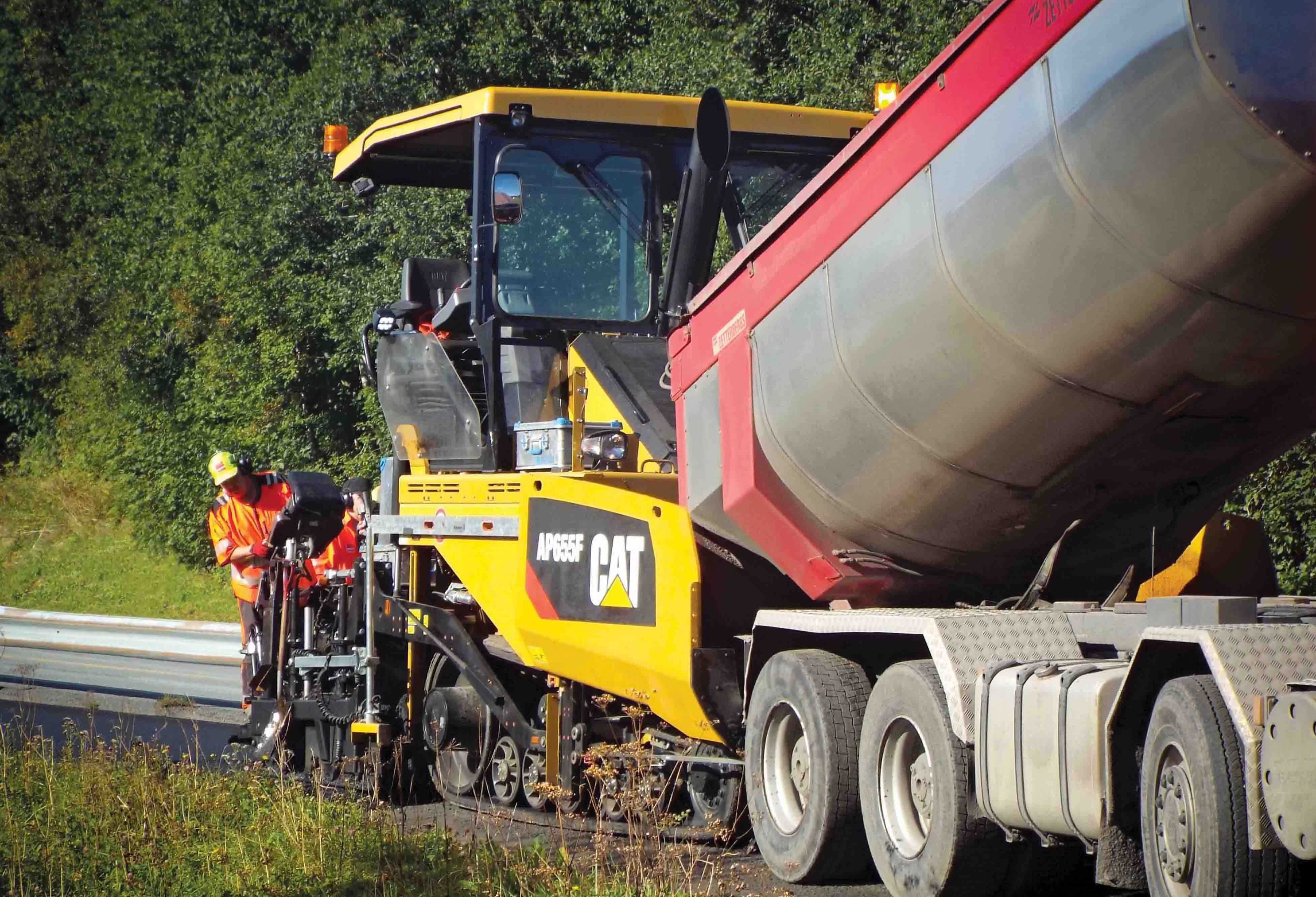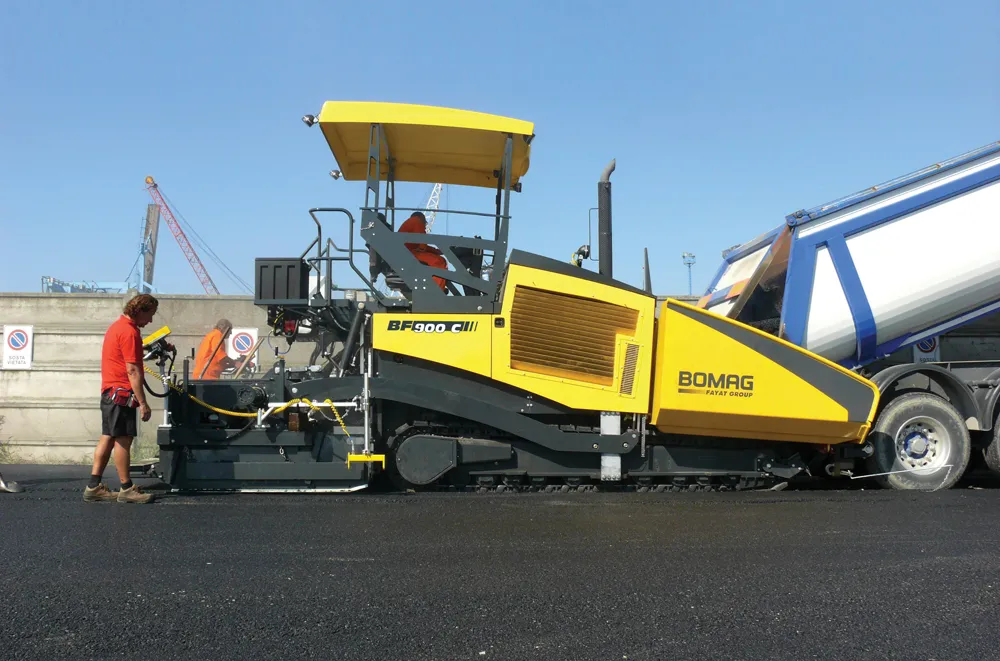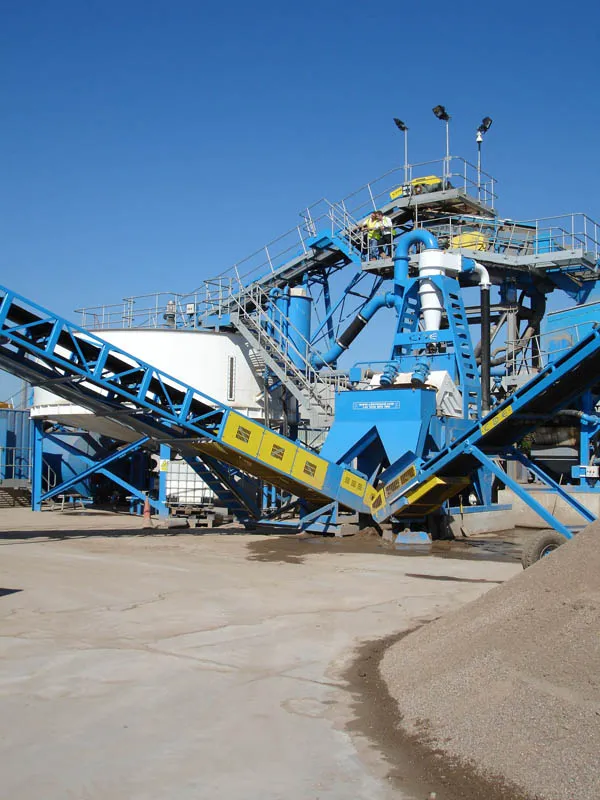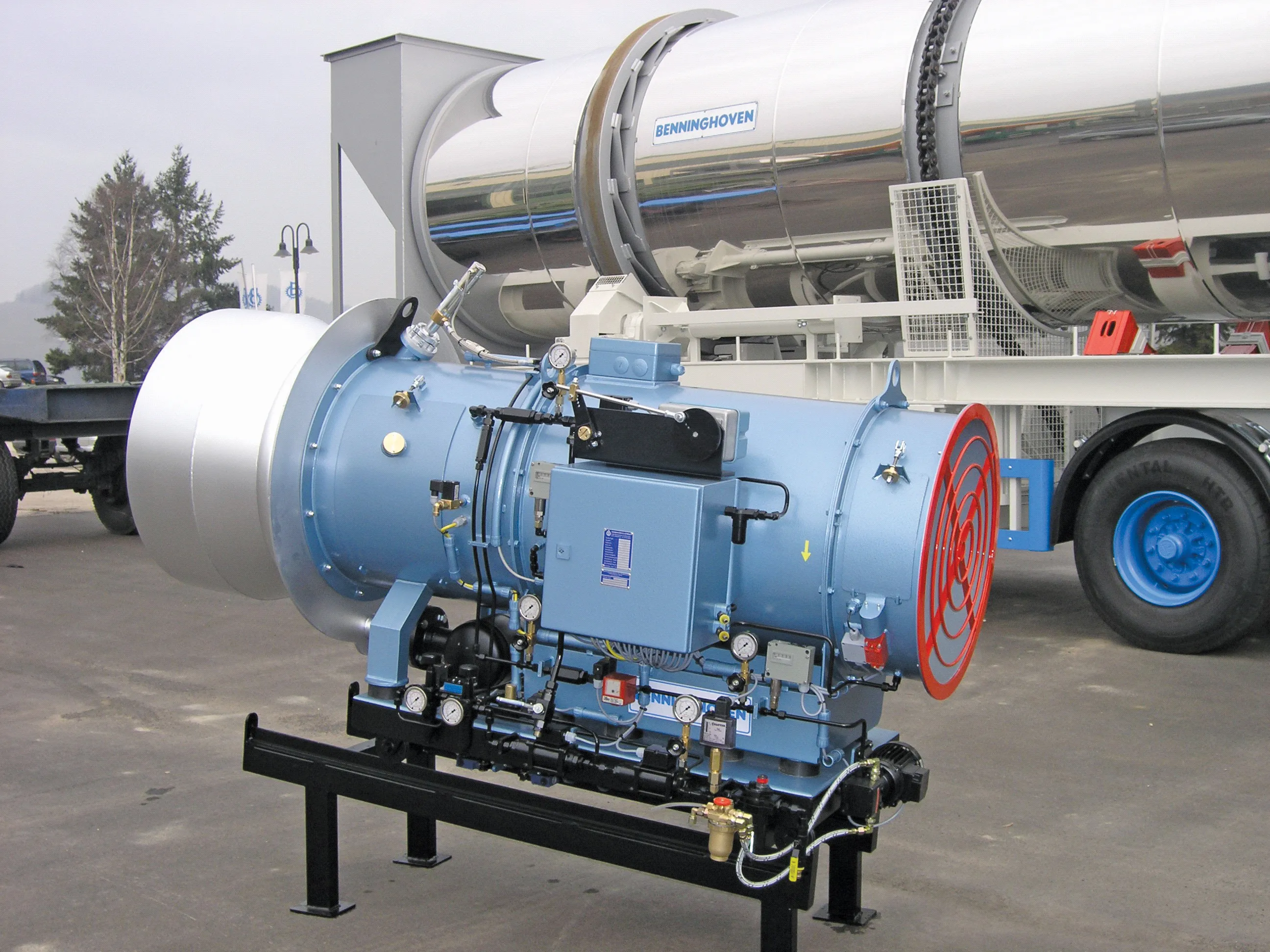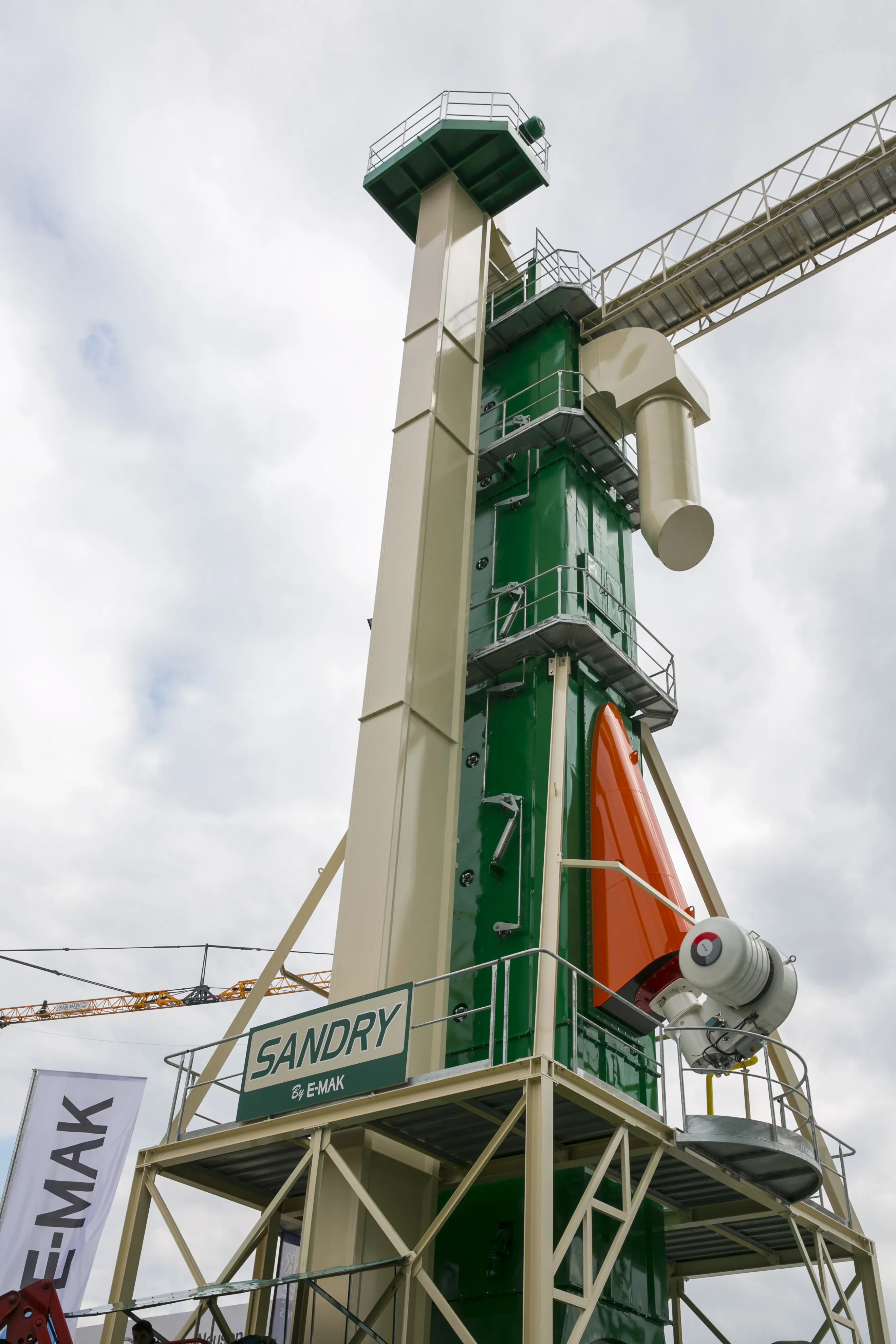
Turkish firm
As the name suggests this piece of equipment is intended to dry sand before it enters the asphalt plant, helping to optimise throughput and also energy consumption, lowering production and running costs for the customer.
The Sandry is designed to handle the 0-5mm sand fractions as these have the greatest surface area, retaining the highest moisture content and requiring separate treatment from larger grain sizes. With conventional systems, all the fractions pass through the same route from the storage hoppers to the drum, however the new Sandry ensures that the 0-5mm grain sizes take a longer route through the system, allowing the moisture to be minimised.
The 0-55mm feed material is routed into a hopper at the top of the Sandry, then is tipped in metred quantities onto the internal shelves. These tip in turn at timed intervals onto the series of shelves down the height of the Sandry’s tower. This process ensures the material is dried as the tower is kept at a constant temperature of 100°C by the two burners. And as the sand does not contain bitumen at this stage, the burners are able to operate with direct heating. The dried 0-5mm fractions then collect at the bottom of the Sandry, where they can be mixed with the 5-38mm fractions at the entrance to the mixer drum.
Because the 0-5mm fractions are preheated and have the moisture removed, this reduces the heating required in the mixer drum substantially, as well as helping to optimise material flow and allow the plant to achieve its capacity. It can be introduced into the material delivery system of most asphalt plants according to the firm.
The system has been extensively tested in the Turkish quarry belonging to the Simge Group, E-MAK’s parent company. As a result the unit is now said to be ready for the market and the firm says that this piece of equipment can help customers make substantial cuts to fuel bills.


